When to Replace a Dishwasher: 10 Signs to Look For
-
Shea Cummings
- Last updated:
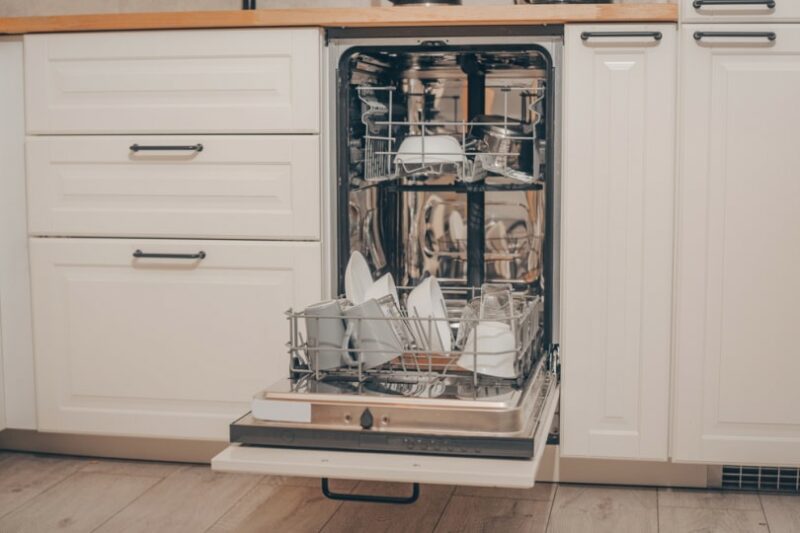
Dishwashers have certainly come down in price and are a much more common kitchen appliance nowadays. There is a point where fixing it is not as cost-effective as installing a new one.
In this article, we will go over 10 possible signs your dishwasher is going to need a repair. We’ll also discuss when to go for a replacement versus a repair.
The 10 Signs That You Need to Replace Your Dishwasher
1. Dishes Aren’t Hot After Being Washed
The point in using a dishwasher is obviously to clean them, but another thing that most dishwashers do is sterilize the dishes. If you use a dishwasher, you’re probably used to burning your hands when you grab something out of it as soon as the cycle’s done.
If you reach in immediately following the cycle and the dishes are not hot to the touch, there’s a good chance something is wrong. A likely culprit is the heating element responsible for increasing the water’s temperature for sterilization.
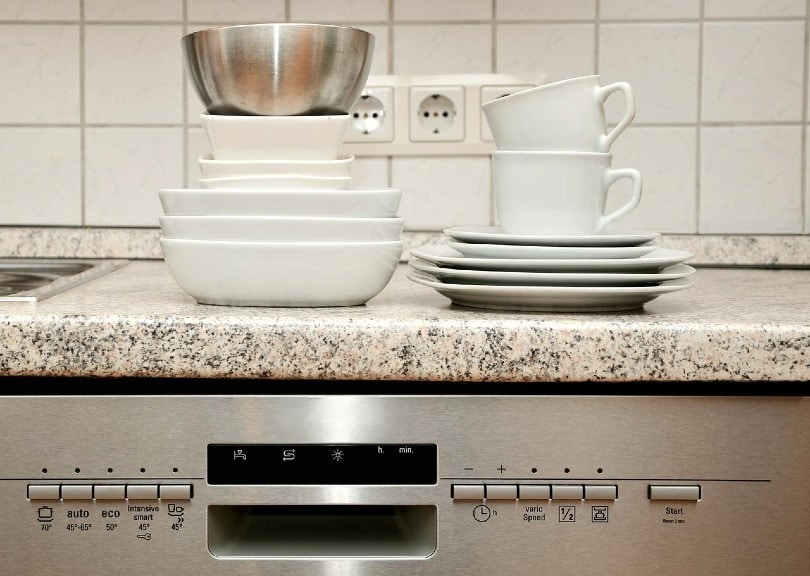
2. Washer Door Not Latching Properly
Over time, components wear out. Hinges and latches are two common items that need replacing. Most dishwashers have sensors to ensure the door is closed before starting the cycle.
As the latch wears out, sometimes it won’t latch properly. Even though the door is closed, the dishwasher’s sensors won’t recognize that it’s closed. This often prevents the cycle from starting, and you’ll just get an error code.
3. Rusting Components
Dishwashers include many metal components, and typically water and metal do not get along. The metal parts are generally rust and corrosion-resistant or coated in plastic to prevent rust. However, if you notice rust on components, it’s important to replace or fix them quickly.
If parts are rusting, this potentially releases tiny metal particles into the cleaning cycle. These particles may get stuck on the dishes and ingested by you later.
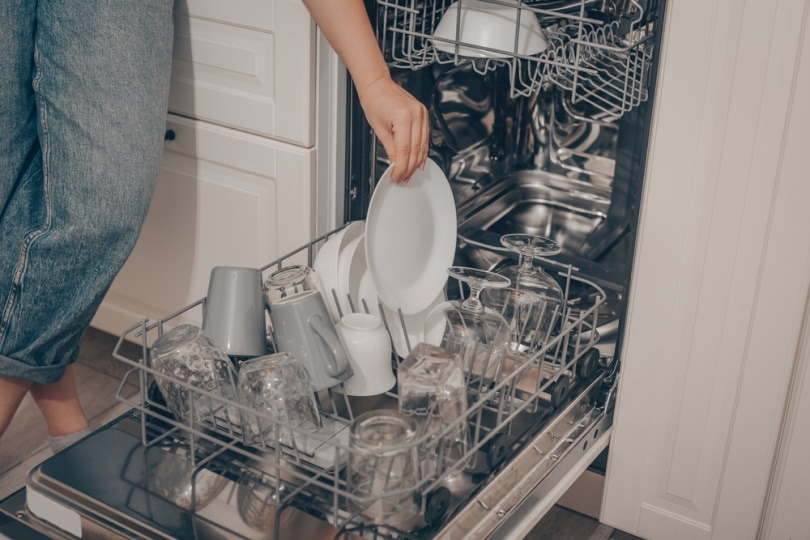
4. Cracks Inside Dishwasher
Eventually, things simply wear out, and you may notice cracks at some point. If they are small enough, the cracks might not cause any problems. However, as they get bigger—and they will—then problems happen. You’ll have water leaking everywhere, or worse, the water will leak where you can’t see it and cause water damage and mold.
5. Not Draining Fully
If you open the washer after the cycle is finished and there is gross cloudy water still left in the bottom, you could have several problems.
A common and simple one to fix is a dirty filter. There will be a filter designed to prevent large chunks of food from draining into the lines at the bottom. You can often clean this, and the dishwasher will drain properly.
Alternatively, there could be a problem with the pump or motor preventing it from draining. This will likely have to be diagnosed and fixed by a qualified appliance repair person.
- Related Read: 10 Best Liquid Drain Cleaners: Reviews & Guide
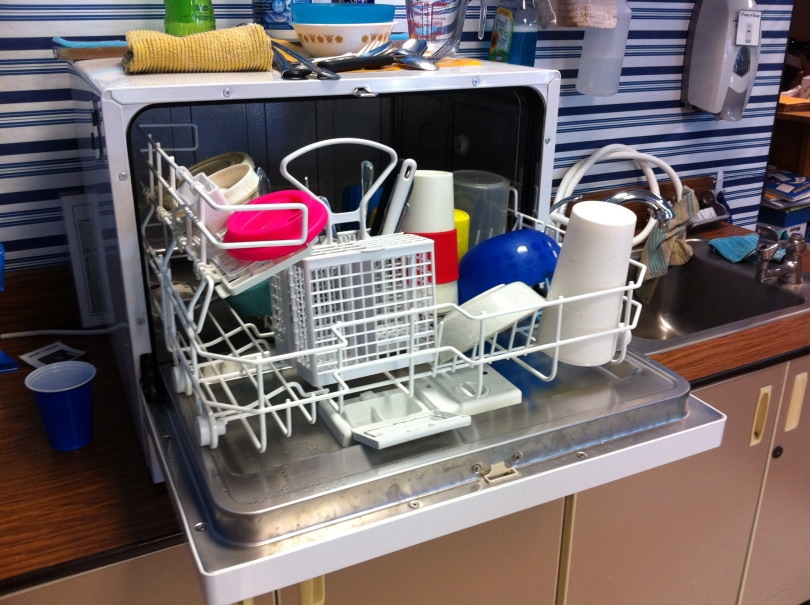
6. Not an Energy-Efficient Model
As dishwasher technology improves, so does their efficiency. If your dishwasher is getting up there in years, it’s likely that there are much more efficient models on the market. The amount of savings you get in water and power may be worth the change—especially if things are starting to break.
7. Old Age
Efficiency aside, having an old dishwasher can be the source of other headaches. Because there are so many affordable options for dishwashers, there comes the point where major repairs simply aren’t worth it.
Once you have to weigh the pros and cons of fixing versus replacing an old dishwasher, it’s probably time to replace it.
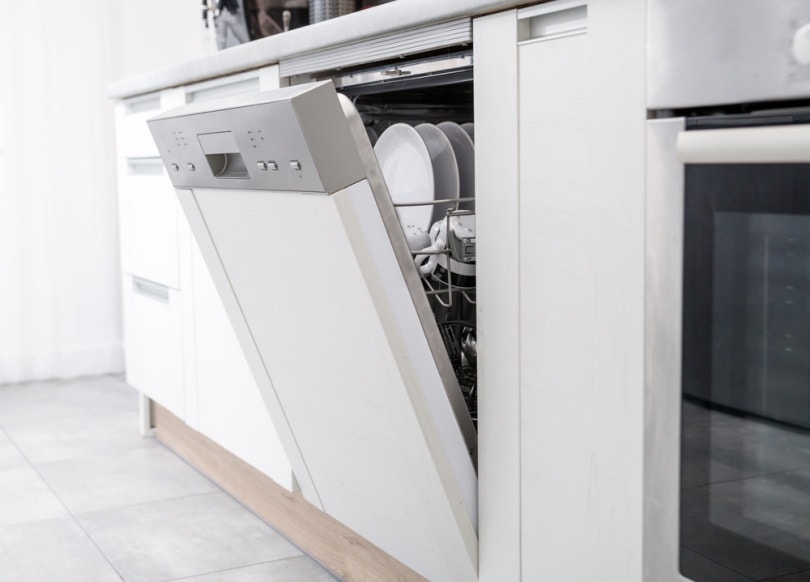
8. Not Cleaning As it Should
Generally, a dishwasher will clean dishes better than you can by hand. This is especially true when dishes are rinsed properly and the correct soap is used. If you’re doing everything right and the dishwasher has always cleaned well, a change in how it cleans is noticeable.
Several things could be wrong if it’s not cleaning properly. Checking the filter and ensuring you’re using the correct soap is a cheap first step. Otherwise, you’ll need to get a professional in to have a look.
9. Leaking Water
Several seals throughout your dishwasher ensure water doesn’t go where it’s not supposed to. Eventually, seals wear out—they begin to dry out and crack. If there are no cracks or obvious signs of damage in the dishwasher, but you see some water on the floor, there is a common seal at the bottom of the door you can check.
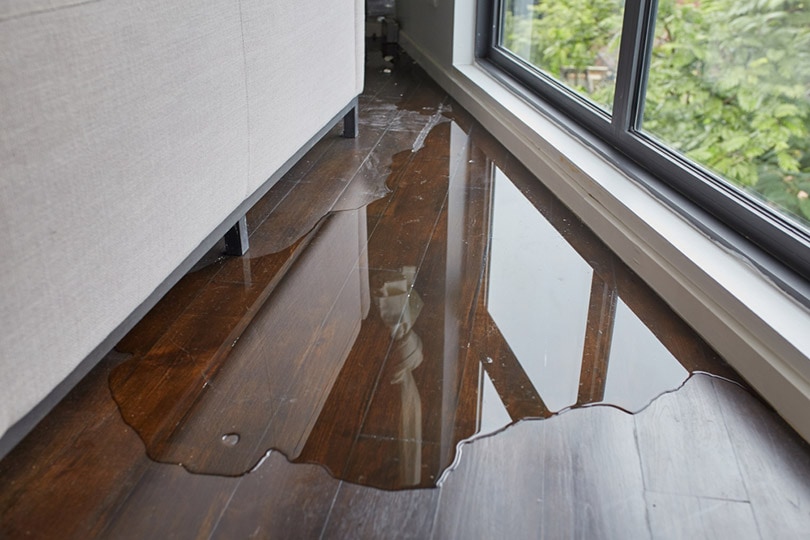
10. Unusual Sounds
Quiet isn’t usually at the top of the feature list if your dishwasher was a cheap model. However, unusual sounds will stick out if you have a reasonably mid to high-end dishwasher. A common component that creates a loud noise is the pump. Depending on the dishwasher, it’s often cheaper to replace the dishwasher than pay for a new pump and its installation.
Replacing vs. Repairing a Dishwasher
The biggest factor in replacing versus repairing is the original cost of the dishwasher. If you purchased a $200 dishwasher and can’t fix it yourself, it will be cheaper to replace it instead of paying someone to repair it.
But if you purchased a high-end dishwasher, many repairs will be worth the expense. Even if you spent a lot on the appliance, age will eventually play into the decision.
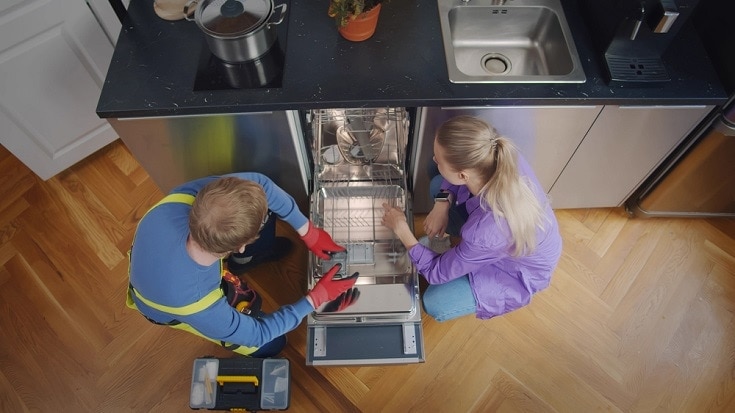
DIY Fixes for a Dishwasher
If you’re handy around the house, there are several repairs you can tackle yourself without a ton of knowledge. Typically there will be a plate or something with the model and serial numbers of the dishwasher. You’ll need these to purchase parts.
Here are a few things that are relatively simple for the average DIYer to tackle:
- Seals
- Filter
- Latching mechanism
- Racks and other loose components
Conclusion
When you’re used to the convenience of having a dishwasher do the work for you, it can be a real bummer when it stops working. By paying attention to some of these things, sometimes you can get it fixed before it completely breaks down—or at least you can budget for a new one if you know it’s on the way out for good.
Featured Image Credit: More Than Production, Shutterstock
Contents
